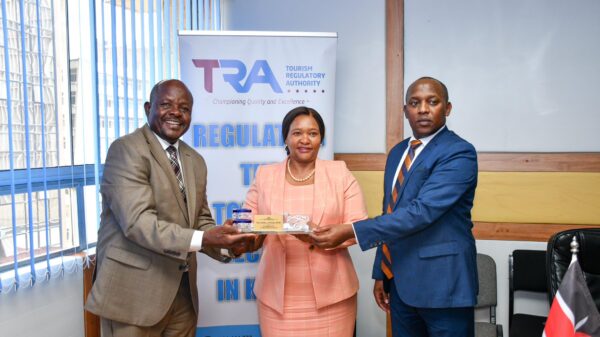By Dr Winnie Akoth
NAIROBI, Kenya, Nov 30 – The shadow of self-inflicted antimicrobial resistance looms large in the healthcare sphere, which is marked by many illnesses caused by factors outside of human control, such as genetics and environmental issues.
It represents a complex challenge that, if left unchecked, has the potential to reshape the landscape of healthcare as we know it. Antibiotics, antivirals, antifungals, and anti-parasitic medications are losing efficacy in the fight against disease, and the consequences are likely to reverberate beyond the lab petri dishes.
So bad is the problem that a publication by the Lancet estimated that approximately 4.95 million deaths in 2019 could be attributed directly to antimicrobial resistance.
Antimicrobial resistance (AMR) can, therefore, be defined as when antimicrobials that were previously used to work against certain infections are not working anymore due to overuse and abuse. This makes infections difficult to treat and can lead to higher costs of care and fatalities at the worst. Antibiotics are estimated to be the most abused antimicrobials. Unfortunately, new antimicrobials are not being discovered at the rate at which resistance is developing to existing ones.
At the heart of this challenge is a largely human-made cause – a cautious overreliance and hasty intervention in the face of illness. These miracle drugs have been medical saviours, capable of eradicating infections with unprecedented efficacy. However, in our zeal to conquer the microbial realm, we may have unwittingly sown the seeds of our own vulnerability.
We frequently turn to medication without professional training, treating self-diagnosed diseases with colloquially earned medical degrees. This leads to the overuse of antimicrobial medications, even when they are unnecessary.
When we have a common cold, for example, we rarely go to the hospital. Instead, we treat the sniffles with a combination of antibacterial medications and home remedies. While the ginger and lemon concoctions can help alleviate some of the symptoms, antibiotics are useless in the fight against a viral infection. We also don’t shun sharing antibiotics with relatives in the same household who share similar symptoms with us, and we end up not completing our treatment course.
Our poultry and livestock farmers have also turned to antimicrobials in a bid to increase their yield, giving these medications to animals who are not necessarily ill. Through the consumption of the products of these animals, people end up being exposed to resistant bugs.
As frightening as this may be, it is not a doomsday prediction; rather, it is a wake-up call. Antimicrobial resistance is already ranked as one of the world Health Organization’s top ten most serious public health threats. We have a role to play in saving these antimicrobials at the individual level, not just for us but also for our children.
Whenever we have an infection, let’s resist the urge to self-medicate. Visit your healthcare professional, who is better equipped to determine whether the infection requires an antimicrobial. Most infections are viral and do not require any antimicrobial therapy. Do not demand antibiotics.
When given antimicrobials, let’s take care to follow the instructions given and complete the course of treatment. Tempting as it is, do not share your antimicrobials with family members who have similar symptoms. Allow them to get assessed and get needed treatment.
The saying, prevention is better than cure, is also not far from the truth in this case. Let’s get vaccinated for infectious diseases that have vaccines. Observe hand hygiene, eat healthy and exercise.
Kenya, recognising the importance of dealing with antimicrobial resistance, developed a national antimicrobial resistance action plan, which outlines strategies such as governance and coordination mechanisms, awareness building, and improving access to and optimal use of antimicrobials.
The action plan correctly considers a variety of angles, as mitigating antimicrobial resistance necessitates a multifaceted approach. At the hospital level, for example, strict antibiotic stewardship is required, with doctors exercising greater caution before prescribing antibiotics and pharmacists not extending their scope to include prescribing antimicrobials without the advice of a doctor. The general public must be brought into the fold, with significant effort from healthcare professionals going into educating the general public about the dangers of antimicrobial resistance.
Furthermore, it compels the pharmaceutical industry to invest in the development of new antibiotics, an area that has been largely neglected in recent decades.
Finally, as we observe World AMR Awareness Week from November 18 to 24, it is critical to recognise that the fight against antimicrobial resistance is more than just a scientific challenge; it is a societal responsibility. It will take a paradigm shift in how we perceive and interact with medicine, as well as collaboration from all sectors, to encourage the prudent use of antimicrobials and preventive measures.
The allure of a quick fix must give way to a more nuanced understanding of the delicate balance between human intervention and microbial adaptation. It compels us to embrace a prudential culture in which antimicrobials are viewed as valuable resources to be used sparingly rather than as cure-alls.
Akoth is an Antimicrobial Stewardship Pharmacist at Gertrude’s Children’s Hospital. wakoth@gerties.org



































